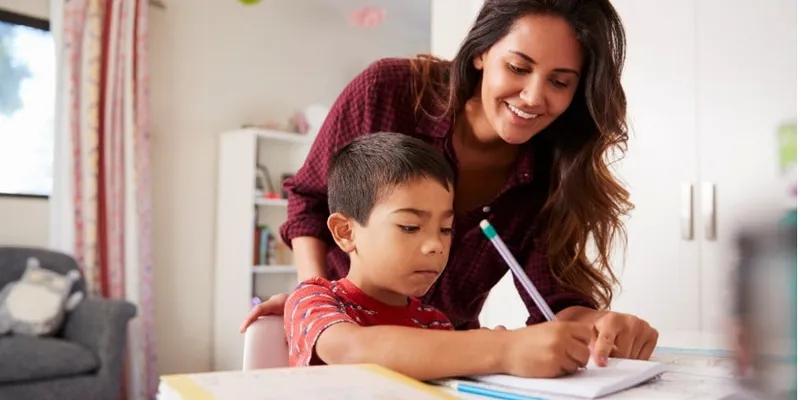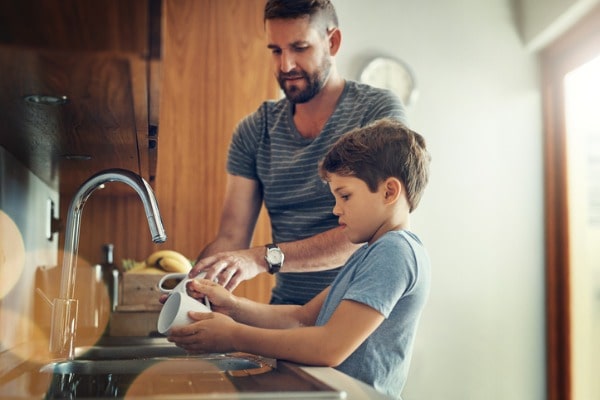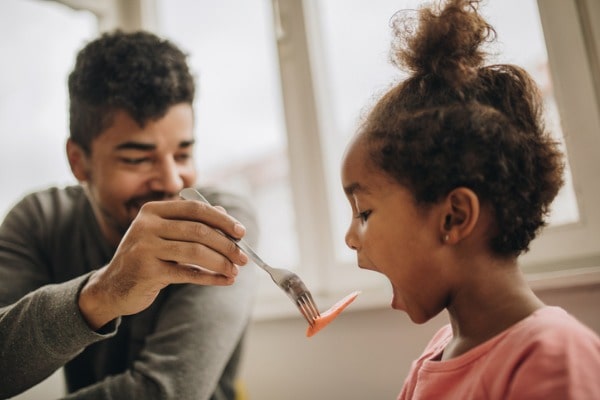How to Help Your Kids Learn Best
Improve the way your kids learn with these tips.
- 4 min read
- child development
- education

How do kids learn?
Learning is much more than schooling. Education is an extremely complex process, and something everyone does from the time they are born. In a paper published by Boston College Psychology Professor Peter Gray, he describes learning like this:
“Learning is the entire set of processes by which each new generation of human beings acquires any or all of the skills, concepts, beliefs, lore, and values–in short, the culture–of the previous generation. Education is a cultural transmission and takes place during every waking hour of every person’s life and occurs most rapidly and significantly during childhood and adolescence.”
This much broader definition of learning supports what child development experts, doctors, and psychologists have all said in various research studies over the past few decades: we must help the “whole child” physically, socially, and cognitively to support their learning.

Excerpts from a white paper published by the LEGO Foundation go on to cite numerous published studies which show how interconnected learning truly is.
“Research in the last few decades has repeatedly shown that the different domains of development are not silos as much as they are interconnected gears: development in one area can influence development in another.”
A toddler who learns to walk can now hold a toy with ease, go in search of his or her caregiver, and gain access to new interactions, language, and play. Infants who are more physically active and explore more at the age of five months show more success in school at the age of 14.
So, what does all this mean for parents?

Kids learn by example
Children learn best through their everyday experiences. You can start helping your kids learn by building a secure attachment with your child at birth. This attachment fosters their ability to learn and communicate their feelings.
Everyday routines are excellent opportunities to develop your child’s growing skills, according to the National Association for the Education of Young Children (NAEYC). These opportunities include talking to your kids, telling stories, making books available, and including them in everyday tasks like cooking and cleaning.
Years of research on why some children read fluently by the age of four, before they had any schooling, resulted in this finding: It did not depend on an unusually high IQ or any particular personality trait and it is not consistently linked to socioeconomic class, but does depend on growing up in a setting where reading is a common and valued activity.

Let kids play
Children need to play. Play is an instrumental component of child development and learning.
The American Academy of Pediatrics published a clinical report called The Power of Play, stating that the importance of playful learning for children cannot be overemphasized. Play is brain building, a central part of healthy child development, a key to executive function skills, and a buffer against the negative impacts of stress.
NAEYC has named play as a central component in developmentally appropriate educational practices, and at the World Conference on Human Rights, play for children was included as a fundamental human right of every child: “Children shall have time to rest and play and equal opportunities for cultural and artistic activities.”
Components of healthy play:
- Play is pleasurable: children must enjoy the activity, or it is not playing.
- Play is intrinsically motivated: children engage in play solely for the satisfaction the behavior itself brings. It has no extrinsically motivated function or goal.
- Play is process oriented: when children play, the means are more important than the ends.
- Play is freely chosen: It is spontaneous and voluntary. If a child is pressured, he or she will likely not think of the activity as play.
- Play is actively engaged: players must be physically and/or mentally involved in the action.
- Play is non-literal: it involves make-believe.

Good health is part of learning too
Physical and mental health are as important as anything else in the process of learning.
According to Harvard University, “Health in the earliest years–beginning with the future mother’s well-being before she becomes pregnant–strengthens developing biological systems that enable children to thrive and grow up to be healthy adults. Positive early experiences provide children with a foundation for building sturdy brain architecture, which supports a broad range of skills and learning capacities throughout the life space.”
The three foundations for lifelong health, according to Harvard, are nurturing, protective relationships; a safe, toxin-free environment, and sound and appropriate nutrition.
Parents can help build solid foundations for their children in all of these areas of health by:
- Developing responsive relationships with their children
- Helping their children build relationships with their peers and other adults
- Helping their children learn to manage their feeling and control their behavior
- Feeding their children nutritious meals and healthy snacks
- Encouraging physical activity and staying active with their kids
- Making sure their children get enough sleep
- Making sure their children have access to regular medical and oral health care
- Encouraging their children to explore the world around them
Learning is a lifelong process, and it is never too late to learn for children or parents. For co-parents, fostering a healthy environment for your kids to learn best in requires cooperation from both sides.
If you and your co-parent need help communicating and coordinating in a healthy way for the betterment of your children, TalkingParents may be able to help. Check out our tools to make co-parenting easier.